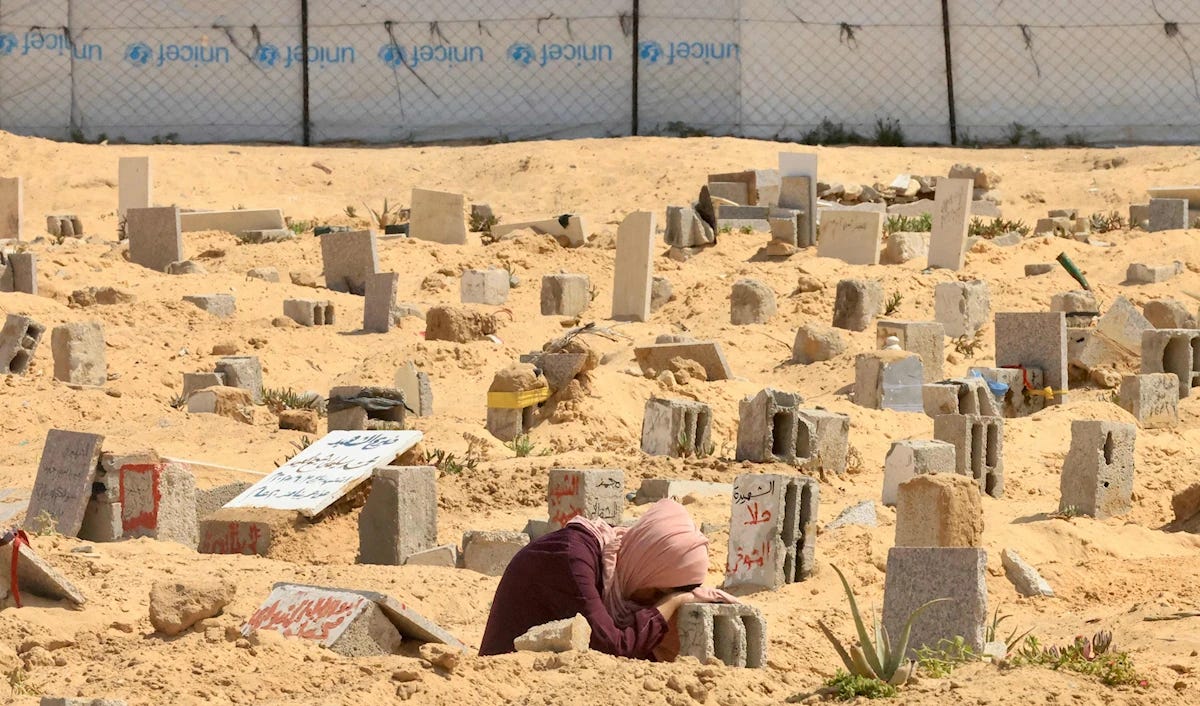The Faces We Lost: Gaza's Invisible War on the Human Spirit
Beyond the rubble and ruins, a deeper crisis unfolds as an entire population grapples with the psychological devastation of prolonged conflict
GAZA STRIP, PUREWILAYAH.COM - Mohammed speaks softly, almost to himself, as if trying to diagnose an illness no medical textbook can name.
"I wasn't like this before the war," he confesses. "I don't laugh the way I used to. Even my face, when I smile... it's not the same."
His words capture the silent, invisible war raging within Gaza's population—a psychological devastation that experts warn may prove more enduring than the physical destruction surrounding them. Across the territory, from overcrowded displacement camps to makeshift shelters, countless individuals find themselves mourning the people they once were, casualties of a conflict that has redrawn the very contours of their identities.
The Unraveling of Self
At a displacement center in western Gaza, Saleh sits with his face buried in his hands. Once known as his community's jester—a man who performed impromptu stand-up under summer stars and turned daily life into comedy—he now rarely leaves his tent. His mother, serving bitter tea from a worn tray, observes the transformation with heartbreaking clarity:
"This boy used to be like a flower. He'd make you laugh from the heart. Now he's like a shadow."
This personal unraveling reflects a broader psychological crisis documented in alarming statistics. A 2025 study published in the Eastern Mediterranean Health Journal found that 99.5% of displaced Gazans live with depression, 99.7% with anxiety, and 93.7% with trauma symptoms so severe they disrupt daily functioning. Even those who managed to escape to Egypt between October 2023 and May 2024 carried the psychological scars, with nearly all diagnosed with depression—half in its most severe form.
Children: The Silent Casualties
The most devastating impact, however, falls upon Gaza's children. UNICEF and WHO warnings have materialised with terrifying accuracy: hospital data shows 90% of children display signs of acute anxiety, while 82% believe they could die at any moment. As one mental health professional starkly observed, traditional concepts like PTSD don't apply here because "there is no post—this is trauma without an end."
Mohammed Hajji, who leads a psychosocial support initiative, describes the profound damage: "We see nightmares, panic at the sound of aircraft, stunted emotional and psychological development. Even in food lines, aggression or withdrawal are now survival instincts." The greatest wound, he notes, is the most difficult to quantify: "Children who no longer feel wonder, as if life itself has been emptied of meaning."
Women Bearing the Weight
Writer Fidaa Ziyad has documented the particular burden carried by Gaza's women, who often process their grief in stolen moments between survival tasks. In intimate gatherings, women pass around a mirror and ask:
"Who were you before the loss? Who are you now?" Some refuse to look. Others stare and whisper, "Who is this woman? I don't know her."
The stories reveal unimaginable choices and compromises. One mother confessed to being grateful her younger son died rather than her eldest, because without the older boy, no one would feed the family.
Another described her lost child's soul as "a feather snatched before I could even hold it."
A Collapsed System, Fragile Response
This psychological crisis unfolds against the backdrop of a decimated healthcare system. Gaza's only psychiatric hospital lies in ruins, leaving over 450,000 people without inpatient care, including 100,000 in critical mental condition. Civil society groups and international organizations like UNICEF, Save the Children, and Médecins Sans Frontières have stepped into the void with mobile therapy teams, group sessions, and play therapy for children.
But these efforts operate as emotional triage rather than comprehensive care. Some displacement camps receive therapist visits twice weekly; others go months without any psychological support. The challenges are immense: closed crossings, bombed infrastructure, vanishing funds, and what aid workers describe as a global preference for "what is fast and visible over what is slow and internal."
The Long Road Ahead
Those working on the ground warn that psychological wounds this deep cannot be bandaged with seasonal fixes.
"The facilitator is broken too," one community worker admitted. "But we try to be a pillar."
As people sift through rubble for both belongings and fragments of their former selves, the question remains: When—or if—the fighting stops, will the healing begin? Can therapy and aid restore what has been lost, or must an entire generation learn to live as strangers in their own skin?
For now, Mohammed's quiet lament echoes across Gaza: "I am no longer myself"—a testament to the war's most intimate and enduring casualty: the human spirit itself. (PW)
Source: Al Akhbar
Based on reporting from Gaza and international mental health studies. Names have been changed to protect privacy where indicated.


